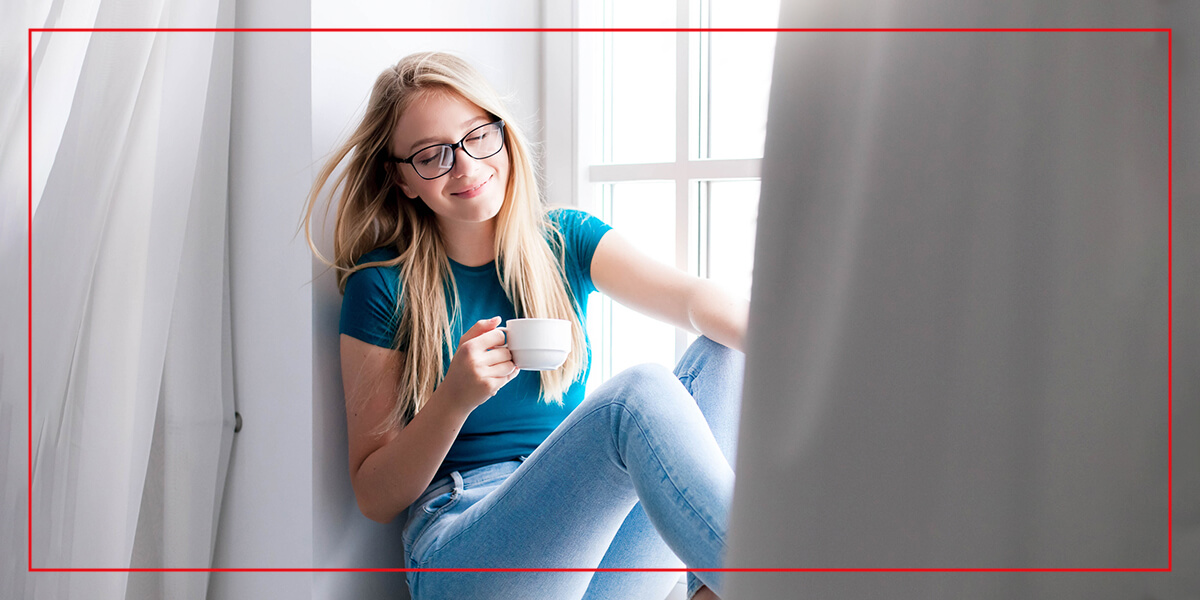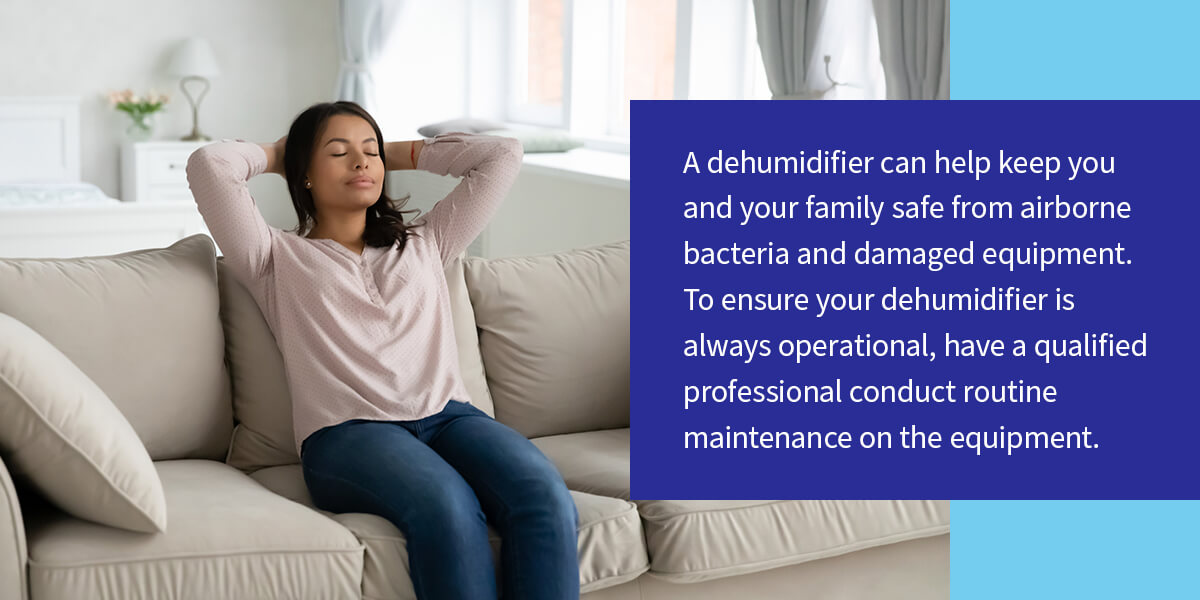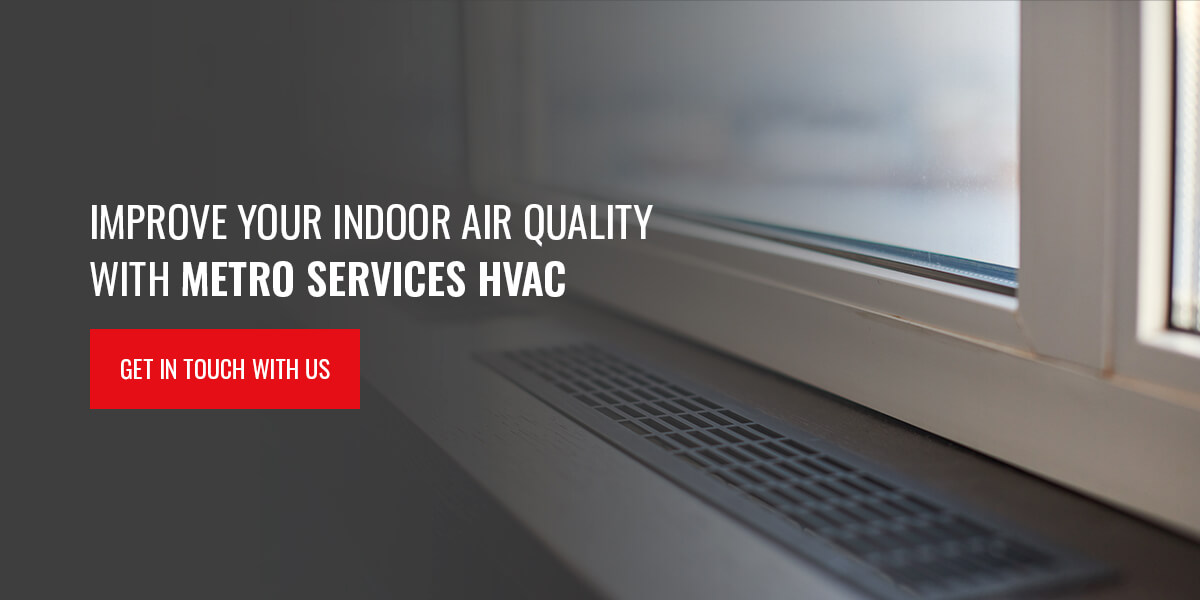
Considering that we spend around 90% of our time indoors, it’s crucial to consider the air quality inside our homes. Unfortunately, poor indoor air quality (IAQ) can lead to health issues and impact the longevity of your belongings.
How do you know if your home has poor air quality? What can you do to fix it? Let’s look at how to increase the indoor air quality in your home with a few simple tips and tricks.
What Factors Affect Indoor Air Quality?
Before taking steps to improve your home’s air quality, it’s best to understand what makes air quality worse. Some common factors that affect IAQ include:
- Humidity: Excess moisture in the air can cause mold, mildew and other pollutants to stay in your home.
- Poor ventilation: With no fresh air entering your home, the same polluted air continues circulating. The pollutants, which have nowhere else to go, build up inside your home and can cause allergies and other health problems.
- Dust: It may sound obvious, but without regular dust removal, dust particles — which include pollen, dead skin cells, pollen, hair and dirt — can trigger asthma and allergies.
- Volatile organic compounds: These chemicals come from products like paint thinners and become airborne when they reach room temperature.
- Pets: Pet ownership requires careful management, especially in allergy-prone households. Pet hair, dust and dander can circulate through your home without regular cleaning and preventive measures.
8 Ways to Improve Indoor Air Quality
The good news is you can do plenty of things to improve your house’s IAQ, including consulting a professional to maximize the flow of decontaminated air throughout your home. Take a look at these tips and tricks on how to increase indoor air quality and keep your family healthy.
1. Change Your AC Filters
While your AC regulates the temperature in your home, its filters capture potential contaminants and prevent them from coming inside. Over time, these filters wear out. They can’t perform this function as effectively, which puts extra pressure on your unit and can result in expenses down the line. It’s best to hire an experienced professional to service your AC unit, who can replace the filters and conduct minor repairs to ensure your unit functions optimally.
2. Remove Pollutants
There are often pollutants in our homes we aren’t aware of. Common household cleaning products and solvents can be culprits. Consider using natural cleaning products, ease up on air freshener use and store any chemical cleaning materials outside of your home. These steps can help you lessen harmful molecules in the air you breathe.
3. Check the Air Ducts
Your home’s air ducts move air throughout each room. If they’re faulty, poorly maintained or dirty, they’ll transfer pollutants from room to room. If you’re concerned about your air ducts or it’s been a while since you conducted maintenance, consider a professional duct cleaning service and conduct regular duct maintenance as a preventive measure to keep your home as contaminant-free as possible.
4. Prevent Excess Condensation
Moisture presents challenges in maintaining indoor air of sufficient quality, as wherever there’s a build-up of moisture, there’s a chance of mold, mildew and other contaminants. Think of areas in your home prone to condensation, such as bathrooms and kitchens. Do what you can to keep these places dry, including the following:
- Install bathroom fans: Be sure all of your bathrooms have fans for ventilation. Additionally, open the windows in the bathroom after you take a shower when you can. This way, you can filter out all of the steam and moisture possible.
- Add a range hood: Pull excess moisture and cooking contaminants from your kitchen by installing an extractor fan in the form of a hood range above your stove.
5. Clean Surfaces Periodically
It’s time to bring your vacuum cleaner out and clean all of your rugs and carpets to get rid of trapped dust particles, pet hair and other debris. Additionally, dust ceiling fans and hard surfaces like countertops and tables to eliminate those air contaminants. Both of these tasks can go a long way toward improving your home’s IAQ.

6. Invest in a Dehumidifier
In a humid climate, owning a dehumidifier is essential, especially if you have a basement. Excess moisture in your home can cause structural damage and damage your belongings. It’s also the perfect environment for mold and mildew to flourish, and breathing in mold spores can cause various health problems.
A dehumidifier can help keep you and your family safe from airborne bacteria and damaged equipment. To ensure your dehumidifier is always operational, have a qualified professional conduct routine maintenance on the equipment. This way, you can ensure you can control the humidity level in your home.
7. Open Doors and Windows
One simple way to interrupt polluted airflow in your home is to open everything up and get as much fresh air circulating as possible. Check the weather beforehand to ensure the smog level isn’t high and there aren’t a lot of pollutants. Assuming the circumstances allow for it, natural ventilation is the perfect way to clear out indoor air pollutants.
8. Consult the Professionals
The leading method to improve your house’s IAQ is with indoor air quality testing services. A licensed professional can identify any potentially harmful toxins in your immediate environment and help you neutralize them with the use of filters. A licensed HVAC technician can also service your complete heating and cooling system to ensure it’s properly circulating air and filtering external contaminants.
Improve Your Indoor Air Quality With Metro Services HVAC
Metro Services HVAC has over two decades of experience in Maryland and Washington, D.C., and can provide you with all the information you need to boost your home’s IAQ and enjoy the multiple associated benefits. Whether you’re looking for duct cleaning services, dehumidifier and humidifier installations or even electronic air purifiers, our experienced and professional staff is here to help you.
Contact us today to get in touch, and we can start planning how to improve your home’s IAQ.

